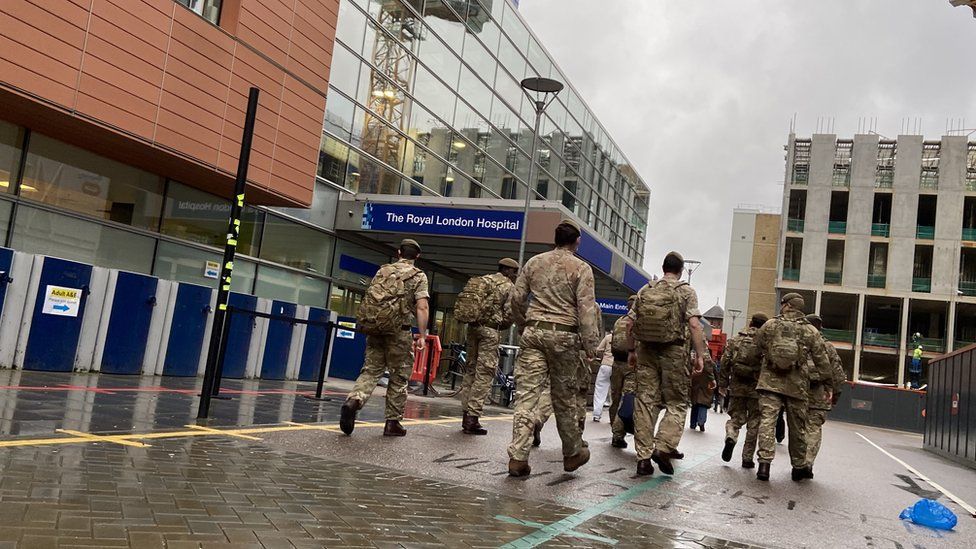Coronavirus cases in London have reduced "significantly" enough for Sadiq Khan to downgrade the Covid-19 "major incident" status in the capital.
It was brought in on 8 January as the Mayor of London warned Covid-19 infections had spread "out of control".
But, Mr Khan warned Londoners need to remain on "high alert" as coronavirus cases remain high.
Currently there are 2,371 patients in London hospitals with Covid-19 - 577 of those are on ventilators.
The move comes after the UK's four chief medical officers decided the UK's Covid alert level should be reduced from level five to level four.
It means the threat of the NHS and other health services being overwhelmed within 21 days has receded.
When the major incident was declared, the coronavirus infection rate in London has exceeded 1,000 per 100,000 people.

Office for National Statistics estimated as many as one in 30 Londoners had coronavirus.
Mr Khan said he was downgrading the major incident status because of "heroic efforts" of Londoners who followed the government's lockdown rules.
He added: "This is not the time to take our foot off the pedal.
"Cases remain high - there are four times the number of patients in our hospitals than when restrictions were lifted last summer, and the incident level remains chronic.
"That's why we must, as a city, remain on high alert."
In the seven weeks since Mr Khan declared the incident firefighters and Met Police officers were drafted in to help the London Ambulance Service cope with demand.
Army medics were also deployed to some of London's hospitals to help cope with the soaring demand of beds needed for those crippled by coronavirus.
He said: "Our NHS and emergency services have gone above and beyond during this most difficult time for our city.
"We must repay them by continuing to follow the rules and taking the vaccine when offered the chance to do so."















